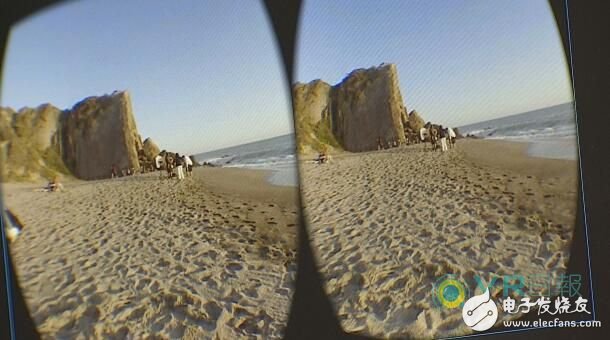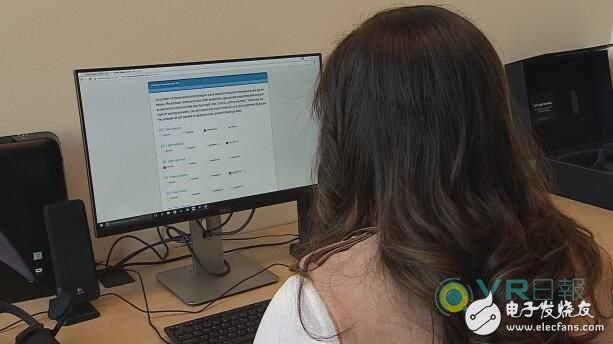The pace of modern life is accelerating, and mental illnesses such as anxiety and depression are increasingly becoming a problem affecting people's mental health. With the help of VR, Anthony Chaston, an associate professor of psychology at Mount Royal Canada, and his student Josh Stewart are studying how to use virtual reality to improve the situation and alleviate the anxiety that people have in their lives.
In this pilot project, patients with anxiety disorders placed themselves on the beaches of California through VR glasses, and researchers were able to observe images fed back from the participants' eyes in real time on a computer screen.
In order to collect as objectively as possible the data on the role of VR in relieving anxiety disorders, Stewart and Chaston rigorously screened participants in the trial, and the screening process was conducted through an online questionnaire. All volunteers needed to address the questions asked. Choose from five different levels of anxiety that match your own description. A total of 80 patients with anxiety disorders participated in the trial.
“In the field of psychology, studies have shown that people can reduce anxiety when they are in nature or in a relaxed environment.†Chaston said that this is the core of this trial.


And VR is hot this year. From the past, the concept that only exists in science fiction has gradually become a device that people can wear on the head, so that people can access "another reality", but now more VR is combined. In the entertainment field, the player is given a more immersive gaming experience.
Professor Chaston hopes that vr technology will one day help those suffering from anxiety disorders and become an effective clinical treatment. In this project, two scholars let participants experience different virtual scenes, from the beaches of California to the Japanese Zen Garden, and strive to create a virtual space that people can relax.
Through a lot of VR scene switching tests, the experimental team obtained a lot of valuable test data. "We have to constantly test to see if this method is reliable and whether VR can help patients with anxiety," Chaston said.
Despite this, there are still many questions to consider during the test, and the differences in patient symptoms add many variables to the trial.
As for the next step, Chaston hopes to move the experiment to the next stage, allowing people to complete certain tasks in VR.
"If we can get a hospitalized 16-year-old boy to travel to Africa, he can take pictures in that virtual world and upload it to his social network to share with friends. Isn't that a great thing?" Chaston Said.
Of course, there is still a long way to go to achieve these ideas, but the current trials have achieved very good results.

After the participants completed the VR treatment, the experimental team conducted a second online survey on anxiety status and compared it with the results of the first survey. Many of the patients who participated in the trial showed signs of amelioration of anxiety symptoms. When they selected matching answers that corresponded to their own feelings, they gained different degrees of improvement when they first received the questionnaire.
“After a good time on the virtual beach, I can still feel the sound of the sea breeze and the waves, and I feel that the pressure on my body has suddenly disappeared,†said one participant, Chodak. "I am very happy to have a virtual reality beach trip before going to sleep every day."
Tempered Glass Screen Protector
Tempered Glass Screen Protector,9H Tempered glass Film,Glass screen protector,Premium Tempered Glass 9H Screen Protector
Guangdong Magic Electronic Limited , https://www.magicmax.cc